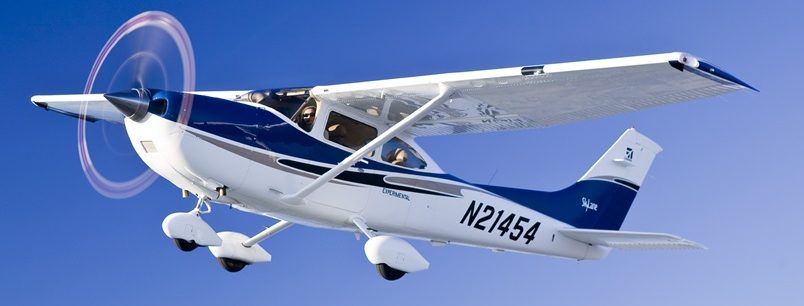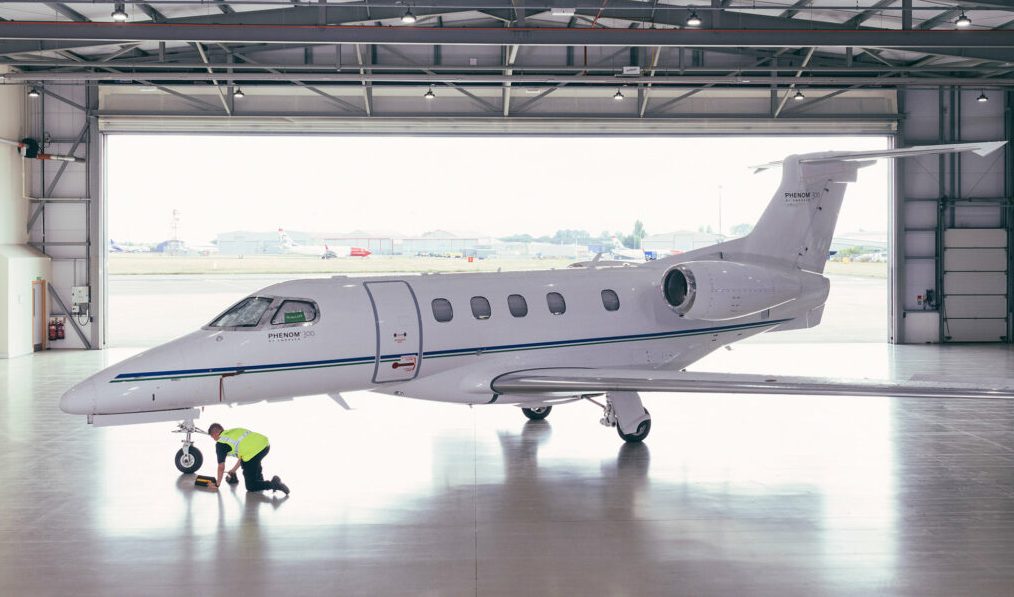Private Jet Auctions: A New Way to Buy and Sell Aircraft
In an era where private jet auctions are gaining traction, AircraftMarket.co.uk is at the forefront of this dynamic marketplace. Navigating the world of aviation sales is taking a significant shift, where both buyers and sellers are benefiting from the radical transparency and unrestricted access provided by these digital platforms. Emerged from the fusion of technology and the growing need for sophistication in the airplane industry, online aircraft auctions herald a new and innovative approach to acquiring and dispensing various types of aircraft. This article will delve into the intriguing sphere of private jet auctions, the potential benefits they offer, the diverse aircraft models available for bidding, and the necessary preparations to partake in such auctions. On this flight of discovery, we will deepen our understanding of the legal considerations and how AircraftMarket.co.uk plays a role to ensure a smooth journey for all participants. Welcome aboard!
The Rise of Online Aircraft Auctions
As the 21st century progresses, the rise of online aircraft auctions has transformed the way buyers and sellers interact in the aerospace industry. From small business jets to large passenger planes, all kinds of aircraft are now bought and sold in the virtual auction block.
Technological Advancements Enabling Online Platforms
The advancements in technology, particularly in internet connectivity and data processing, have played a crucial role in the emergence and growth of online aircraft auctions. Reliable and high-speed internet connections allow buyers and sellers to participate in auctions from anywhere in the world, breaking down geographical barriers that once constrained traditional auctions. Integrated and automated data processing systems ensure real-time updates and accurate tracking of bids, leading to efficient and fair auction procedures.
Moreover, the development of secure online payment systems gives participants the confidence to transact high-value assets such as private jets. Simultaneously, virtual reality and 360-degree visualization technologies enable potential buyers to inspect aircraft virtually, which is a significant improvement considering the physical limitations of traditional inspections.
Increased Accessibility for Buyers and Sellers
One of the main drivers of the increase in online aircraft auctions is the unprecedented accessibility for both buyers and sellers. Online auctions allow a larger pool of potential buyers to participate, promoting competitive bidding and helping sellers to secure the best prices for their aircraft.
For buyers, online auctions have made it easier to find and purchase specific aircraft models that may not be readily available in their local market. They can browse various aircraft listings, place their bids, and streamline the purchasing process—all from the comfort of their home or workplace. This convenience, coupled with the potential for competitive pricing, has made online auctions a popular choice for buying aircraft.
Benefits of Private Jet Auctions for Buyers
For buyers seeking to acquire a private jet, auctions present opportunities that traditional sales may not offer. In this regard, there are several advantages potential buyers can benefit from when they participate in private jet auctions. Among the most significant benefits are the potential for competitive pricing, access to a wider range of aircraft, and transparency in the bidding process.
Potential for Competitive Pricing
Private jet auctions provide a unique platform where potential buyers can observe the value assigned to aircraft by different bidders, and subsequently, make more informed decisions. The open bidding format often leads to competitive pricing, as no pre-set selling price is established for the aircraft, but instead, the final selling price is determined by the highest bid. Auctions, therefore, can result in buyers securing aircraft for prices less than market value, which is a significant incentive.
Access to a Wider Range of Aircraft
Hundreds of aircraft can be listed in a single auction, increasing a buyer’s exposure to various aircraft types and models. This diverse selection is rarely matched in traditional, one-on-one sales environments. Whether a potential buyer is on the lookout for a light jet for short-haul trips or a long-distance, ultra-long-range aircraft, a private jet auction allows the buyer to speculate and bid on multiple aircraft simultaneously. This wide-ranging choice potentially saves time and resources buyers would otherwise use to scour through aircraft sales listings.
Transparency in the Bidding Process
Auction houses conduct their operations under strict regulations and guidelines to ensure fair trading. The rules of the auction are typically outlined clearly to all participants before the process begins. During the auction, each bid is public, creating an open, transparent environment. This transparency can build a buyer’s confidence knowing that they are involved in a fair bidding competition. Additionally, a detailed history and inspection report of each aircraft are typically provided, thus ensuring that buyers are well-informed on the aircraft’s condition before bidding.
Buyers can time their bids based on the information available, maximizing their chances of securing their preferred aircraft at an advantageous price. By offering competitive pricing, varied selection, and transparency, private jet auctions represent an innovative and potentially rewarding method to acquire aircraft.
Advantages for Sellers in Aircraft Auctions
The appeal of private jet auctions extends not only to buyers but also to those seeking to sell their luxurious aircraft. The auction process presents certain advantages that make it an attractive option for sellers. Here, let’s delve into the benefits sellers stand to gain in these specialized marketplaces.
Faster Sales Process
One major attraction to sellers in private jet auctions is the speedy sale process. Traditional private jet sales can often be lengthy and complex, often taking months, or, in some cases, more than a year to finalize. This extended timeframe can lead to increased holding costs for sellers, including maintenance, storage, and insurance costs, which can significantly erode the potential profitability from the sale. In contrast, private jet auctions typically have a defined timeline, which can speed up the sales process considerably, helping sellers to avoid these prolonged holding costs.
Reaching a Global Audience of Potential Buyers
Another significant advantage of private jet auctions for sellers is the access to a diverse, global pool of potential buyers. As these auctions are conducted online, they remove geographical boundaries that can limit potential buyer reach in conventional sales methods. By exposing their aircraft to a larger global market, sellers can drive increased competition among bidders, potentially resulting in higher final sale prices.
Setting Reserve Prices to Protect Investments
Lastly, one key draw of private jet auctions for sellers is the ability to set a reserve price on their aircraft. This means sellers can establish a minimum price that they are willing to accept for their aircraft, ensuring they do not end up selling their asset for less than its worth. The presence of a reserve price can also help to ignite competition among buyers, who may bid more aggressively to meet or exceed this threshold.
In summary, private jet auctions can offer a faster sales process, broader buyer reach, and protections for sellers’ investments, making it an exciting avenue for those looking to sell aircraft in today’s evolving aviation market.
How Private Jet Auctions Work
Understanding the operation of private jet auctions is crucial to successfully navigating them, whether as a buyer or seller. This segment delves into the procedural aspects, from pre-auction requirements through to post-auction transactions.
Pre-auction Procedures and Requirements
Before the launch of a private jet auction, various preparatory steps are taken. Sellers need to provide comprehensive documentation for their aircraft, including maintenance records, ownership documents, and operational history. This is vital to establish the jet’s status, value, and authenticity.
The aircraft is then appraised by expert valuators to set a reasonable starting bid price, often alongside a reserve price to safeguard the sellers’ investments. The specifications, images, and other pertinent information are listed on the auction platform for prospective buyers to view and assess.
Meanwhile, potential buyers are required to register on the auction platform, providing necessary identification details. Moreover, they’re required to confirm their financial capacity to execute the purchase, minimising the risk of unfulfilled transactions.
Bidding Process Explained
Once the private jet auction goes live, registered buyers can start placing their bids. Auctions usually operate on a timed basis, with bidders striving to offer the highest price before the counter runs out. When a bid is placed, the system will automatically extend the bid time, offering other bidders a chance to outbid the highest offer.
Private jet auctions are marked by full transparency, with participants knowing how many bidders they’re up against, the current highest bid, and the time remaining. Unlike the conventional direct-negotiation sales, auctions stimulate competitive pricing, potentially leading to excellent deals.
Post-auction Transactions and Transfers
After the auction, the highest bidder is declared the winner. However, if the final bid doesn’t meet the reserve price set by the seller, they reserve the right to reject the sale. If the bid is accepted, the buyer and seller proceed to finalize the transaction, including signing the contract and settling the payment.
The post-auction phase also involves legal title transfer and delivery of the plane to the new owner. Depending on the deal specifics, this might involve cross-border logistics if the buyer and seller are in different countries. Auction platforms often provide support at this stage to ensure that the process is smooth, ensuring a satisfactory conclusion for all parties involved.
Overall, private jet auctions present a streamlined, competitive, and intuitive method for aircraft sales, connecting buyers and sellers from all around the globe in a dynamic marketplace.
Types of Aircraft Available in Auctions
A key aspect of private jet auctions that attracts a vast pool of buyers and sellers is the diversity of aircraft type available. From smaller, agile turboprops to luxurious long-range jets, the auction market spans every category of private aircraft fulfilling diverse travel needs and preferences.
Light Jets and Turboprops
The light jets and turboprops category offers efficient, cost-effective solutions for short to mid-range travel. The aircraft in this section usually accommodate up to 8 passengers and have a flight range of up to 2000 miles. This range makes these aircraft types ideal for regional travel. Flight speed, fuel efficiency, and lower operational costs make them an attractive choice for personal use or for businesses that require frequent regional travel. Moreover, turboprops and light jets are known for their ability to land on shorter runways, granting access to more remote locations and smaller airports.
Midsize and Super-midsize Jets
Midsize and super-midsize jets present an exceptional balance of comfort, range, and cost-efficiency. These aircraft are designed for longer-haul flights, typically accommodating 8-10 passengers with a flight range approximately up to 5,000 miles. Mid-size jets also offer more headroom, larger baggage compartments, and often include amenities like a private lavatory and a well-equipped galley. Super mid-size jets offer greater passenger capacity, extended range, and more luxury features, making them perfect for transcontinental journeys.
Long-range and Ultra-long-range Aircraft
For prospective buyers whose aviation needs include intercontinental travel, extremely long flights, or chauffeuring larger groups, long-range and ultra-long-range aircraft are the premium category. These jets offer superior comfort features like fully reclining seats, noise reduction technology, and in-flight entertainment systems. They can carry up to 16 passengers (or even more, depending on the model) over distances exceeding 6,000 miles, ensuring that you can travel from London to New York or Dubai without making a refuelling stop. These features, coupled with the potential for a customised, luxury interior, make long-range jets the pinnacle of private aviation.
It’s important to note that while aircraft type is a primary factor, the specific features and performance of individual models within each category can vary widely. Therefore, doing due diligence on each lot in an auction is crucial for would-be bidders. The broad range of aircraft available in private jet auctions accommodates the travel needs and budgets of various buyers, enabling efficient and convenient travel solutions.
Preparing for a Private Jet Auction
Before diving into the world of private jet auctions, prospective buyers and sellers must adequately prepare to ensure the best possible outcomes. Here’s what you need to know:
Research and Due Diligence
In preparing for a private jet auction, both buyers and sellers must carry out sufficient research and due diligence. For buyers, this involves defining their aircraft needs, evaluating factors like operating costs, aircraft range, and maintenance requirements of various jet models that might be ideal for them. Moreover, it’s crucial to research the market values of these aircraft to understand what represents a good deal.
Sellers, on the other hand, need to perform due diligence by accurately representing the aircraft’s condition, history, and maintenance records. A comprehensive logbook documenting the jet’s entire history can significantly increase the vessel’s value and attract serious bidders.
Financing Options and Considerations
Private jets are a significant investment, and understanding different financing options available is crucial for during the auction process. While some buyers can afford to pay cash for an aircraft, others might consider loans or lease options.
Before the auction, potential buyers should secure a pre-approval from a lender, which gives them a clear idea of how much they can afford. Sellers, on the contrary, might want to offer financing or leaseback options to attract more bidders and expedite the sale process.
Understanding Auction Terms and Conditions
The terms and conditions of each auction house vary, so it’s essential for both buyers and sellers to familiarize themselves with these rules.
For buyers, understanding the bidding increments, payment terms, and potential buyers premiums is key. It’s also critical to comprehend what happens if they’re the highest bidder – usually, a contract is immediately formed, and they are legally obliged to purchase the aircraft.
On the other side, sellers should understand what costs they may occur, like entry fees, and what happens if the aircraft doesn’t reach the reserve price. Being clear on these points can help prevent any confusion or disappointment when participating in a private jet auction.
In conclusion, proper preparation is critical to a successful private jet auction. Both sellers and buyers must carry out all necessary research and understand their financial options and the auction’s terms and conditions. Following these steps can both enhance your chances for a successful auction and help you secure the best possible deal.
Risks and Considerations in Aircraft Auctions
While private jet auctions present numerous opportunities for buyers and sellers, they also come with risks and considerations that need to be addressed to ensure a successful transaction.
Potential Pitfalls for Buyers
The primary allure of an aircraft auction is that it provides potential for buyers to purchase a private jet at a significantly lower price than usual. However, one of the potential pitfalls for buyers includes the risk of bidding far more than the actual worth of the aircraft due to the competitive nature of the auction.
Buyers also have to be aware of the sale conditions. Unlike traditional sales, where there’s time to negotiate contract terms, aircraft auctions typically use “as-is, where-is” conditions, meaning that buyers take the planes in the condition they’re present at the auction, including any existing damages.
Furthermore, there is the risk of purchasing an aircraft with hidden mechanical issues. This can be particularly problematic if the buyer is not given ample opportunity to thoroughly inspect the aircraft and review its maintenance records prior to the auction.
Challenges for Sellers
On the other side, sellers face hurdles too. While sellers may hope for a profitable sale, there’s a risk that the aircraft may sell for less than desired if the auction doesn’t attract the expected number of bidders or if there’s low competition.
Sellers must also be prepared to relinquish control over the sales process. Once the item is listed for auction, the seller has limited control over who buys the aircraft and the final price.
Additionally, sellers have to ensure that the aircraft’s logbooks and maintenance records are organized and complete, as missing documentation could dampen bidders’ interest and affect the final sale price.
Importance of Professional Guidance
Given these potential pitfalls and challenges, both buyers and sellers can greatly benefit from seeking professional guidance when participating in private jet auctions. Professionals, such as aviation consultants, brokers, or attorneys, can offer valuable advice based on their industry expertise and experience.
They can assist buyers in conducting a dutiful investigation of the aircraft before bidding, including arranging pre-buy inspections and reviewing the aircraft’s maintenance history. For sellers, professional consultants can help optimise listing strategy and set the appropriate reserve price to protect their investment.
Remember, the outcome of any private jet auction is ultimately determined by performing due diligence, understanding the auction process, and making informed decisions with professional guidance.
AircraftMarket.co.uk’s Role in Private Jet Auctions
AircraftMarket.co.uk has emerged as a trusted intermediary in the realm of private jet auctions. Streamlining the process, the platform has several robust features and a dedicated team providing support during and after the auction, ensuring an upscale experience for all participants.
Platform Features and Benefits
The AircraftMarket.co.uk platform has been strategically designed to simplify the auction process. With its user-friendly interface, it allows a broad range of potential buyers and sellers to easily participate. The platform displays comprehensive information about each jet on auction, including technical specific








